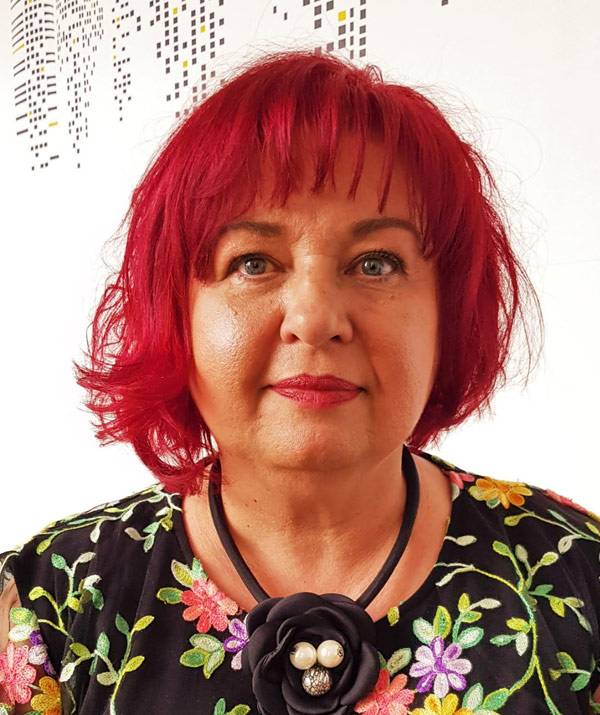Suzana Ramšak is a senior consultant for German as a foreign language at the National Education Institute of the Republic of Slovenia – since 2012. Before becoming a pedagogical adviser, she taught German in upper-secondary school programmes for 27 years. She is an external assessor of the national final exam in the subject German and used to be a member of the Subject Testing Committee for the national vocational final exam at The National Examination Centre from 2012 to 2020.
Suzana participates in various groups and projects with the common aim to introduce formative assessment into schools and to foster student voice in classrooms; she carries out numerous workshops, lectures and seminars for teachers and prepares supporting materials for enhancing formative assessment in daily teaching practice. She is a member of the expert team for embedding formative assessment in teaching and learning since 2014. From 2016 to 2020, she was a member of the international project team Erasmus+: Student Voice – the Bridge to Learning.
Since 2020, she has been a member of the international project team Erasmus+: Developing adaptive expertise to foster an effective learning environment. Currently, she is active in the national curricula reform, for German in primary, secondary, and upper secondary levels.
Formative Assessment – The Path to Adaptive Expertise
Workshop
Co-presenting with Saša Kregar, Nives Markun Puhan, and Dr Nina Novak
The topic of the workshop is the Slovenian model of implementing formative assessment or assessment for learning in everyday classroom practice. The purpose of embedding it will be illustrated by a theoretical frame as well as examples of best practice.
The Slovenian model will be presented through five key elements of formative assessment: learning intentions and success criteria, evidence of learning, formative feedback, questions to support learning,
self-evaluation and- peer evaluation, presenting their role in the process of learning and highlighting the benefits for the teachers and students. The focus will also be on the key strategies of formative assessment, i.e. student participation in creating learning intentions and success criteria, building on students’ prior knowledge, providing effective feedback, peer-learning as a source of learning and teaching, self-evaluation for self-regulation of learning, each including a collection of diverse evidence of learning.
Finally, the Slovenian model of adaptive expertise will be presented, putting the elements and strategies of formative assessment at the very core of inclusive practice.


